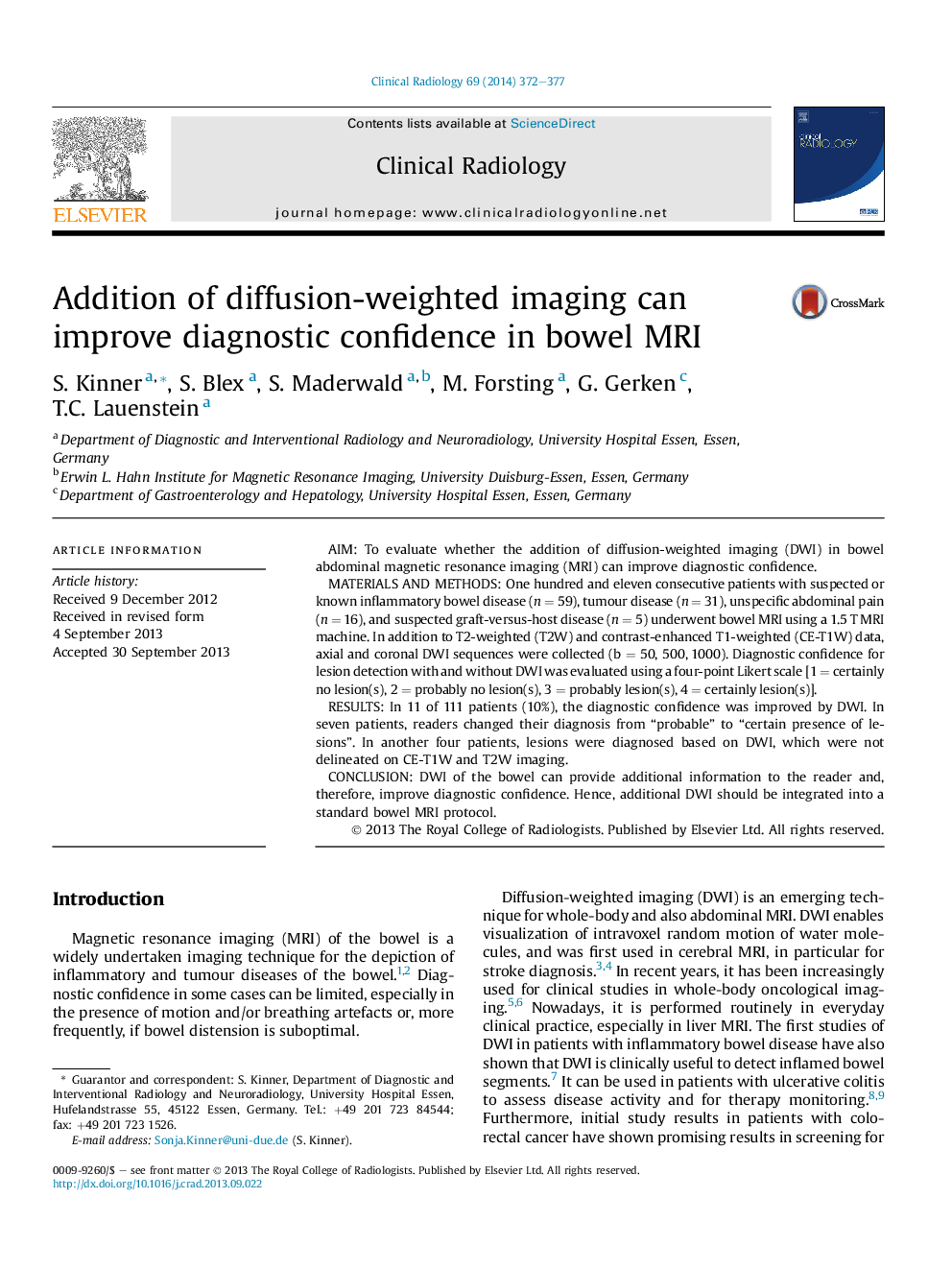| Article ID | Journal | Published Year | Pages | File Type |
|---|---|---|---|---|
| 3981625 | Clinical Radiology | 2014 | 6 Pages |
AimTo evaluate whether the addition of diffusion-weighted imaging (DWI) in bowel abdominal magnetic resonance imaging (MRI) can improve diagnostic confidence.Materials and methodsOne hundred and eleven consecutive patients with suspected or known inflammatory bowel disease (n = 59), tumour disease (n = 31), unspecific abdominal pain (n = 16), and suspected graft-versus-host disease (n = 5) underwent bowel MRI using a 1.5 T MRI machine. In addition to T2-weighted (T2W) and contrast-enhanced T1-weighted (CE-T1W) data, axial and coronal DWI sequences were collected (b = 50, 500, 1000). Diagnostic confidence for lesion detection with and without DWI was evaluated using a four-point Likert scale [1 = certainly no lesion(s), 2 = probably no lesion(s), 3 = probably lesion(s), 4 = certainly lesion(s)].ResultsIn 11 of 111 patients (10%), the diagnostic confidence was improved by DWI. In seven patients, readers changed their diagnosis from “probable” to “certain presence of lesions”. In another four patients, lesions were diagnosed based on DWI, which were not delineated on CE-T1W and T2W imaging.ConclusionDWI of the bowel can provide additional information to the reader and, therefore, improve diagnostic confidence. Hence, additional DWI should be integrated into a standard bowel MRI protocol.
